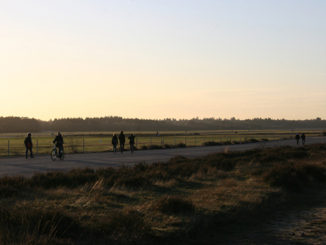
Landscape Architecture graduates are celebrating their graduation in various parts of the world and many are looking forward to joining the profession and living their passion. But often they are unsure about the future and the following information seeks to help provide some advice and guidance.
Plan
You need to plan what you want your career to become. You may have no idea at this time, then look to your strengths and passions. Do you like to design or formulate policy? Do you like project management? Are you passionate about communities and justice? Do you enjoy being on-site and seeing things come out of the ground?
Once you have answered these questions you need to plan to create an outline for your career and who do you admire? and who inspires you? or are you highly-motivated and wish to start your own thing? You don’t need to plan out your career in detail but think about what you enjoy and were (and where) you want to be in the future.
Of course, you may not admire anyone yet or be passionate about one area of landscape architecture. For you I would think you may be better talking through ideas with your peers, university, local association/institute and attend some events and professional sessions. You may decide that your plan may be to explore different areas of landscape architecture over one or two years and then create a plan.
Prepare
Now that you have a plan or looking to formulate one, you need to prepare yourself for meeting people and job interviews by pulling together your introduction email/letter, education transcript, resume, and portfolio into a presentable format so that you can readily send it to firms and organisations during the application process.
I often get asked about portfolios and what should be in them. There are three criteria that I advise that you need to use when collating your portfolio.
One, play to your strengths and put your best work first. First impressions count so make sure your first pieces are your best work that draws them in beyond the first image to want to know more about you.
Secondly, make sure you have a broad range of pieces (plans, perspectives, sketches diagrams, details, reports, as employers may be looking for different skills to hire. Employers are not always looking for someone who can create great plans and perspective renders, they may be looking for a graduate who has a broad range of skills and this gets you an interview.
Third, show your design process and your thinking. Often plans and designs are the final product of many weeks of work, but often employers are interested in your process, idea generation and how you got to the final design. They don’t have to be finely polished pieces, they can be rough and loose as the design process is a reiterative process of exploration.
Network, Job Boards and Groups
Look to your network fellow students (from your year and previous years), your tutors and lecturers to find connections with people who can assist in introductions to people or firms who are looking for graduates. Also look to job boards (on landscape association sites, universities, general job boards) to see who is hiring.
Keep on Learning and Keep Hungry
You’ve finished your course, you have a job and now you are on your way to becoming a landscape architect. Your course prepared you to design and research, but there is a lot more to learn about being a landscape architect, even after 20 years in the industry I am still learning and I would encourage you to continue to learn and keep hungry for knowledge and challenge yourself to be outside your comfort zone.
Seek out a mentor
We all learn through practice and doing, but sometimes we need guidance from others and I have been fortunate to have a few mentors during my career and I would encourage you to seek out a mentor whether it is in your workplace or another office. Landscape associations often hold events to match new and junior landscape architects with more senior members of the profession to provide guidance about the industry and how to achieve your plan and goals.
Keep in touch and attend events
Make sure to keep in touch with your fellow students, tutors, lecturers through attending events or work as a tutor or attend design reviews and critiques at your or other landscape architecture courses.
Have Patience
Your first job may not be the dream job but it is the first step in your plan and professional career. As a graduate, you have to remember to have patience and look to the long term. You may think that you are moving too slowly and should be creating and designing landscapes early on in your career, but remember careers take time to develop and expertise is learned through experience. Have the patience and try to learn and experience all that the landscape profession has to offer.
Enjoy yourself
Lastly, enjoy the profession, sometimes it is serious but more often it is a fun and rewarding profession that allows you to create and be involved with cities, communities, and people at a level that many people don’t ever have the honour to experience.

Article Written by Damian Holmes is the Founder and Editor of WLA.
He is also a registered Landscape Architect with extensive experience in Australia, Canada, and China.
Cover Graphic | Flickr User John Walker



